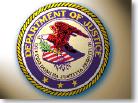|
DOJ sues American Air
|
 |
May 13, 1999: 6:03 p.m. ET
U.S. says carrier used 'predatory' tactics to quash Dallas-Ft. Worth competition
|
NEW YORK (CNNfn) - The U.S. Justice Department filed suit Thursday against American Airlines, charging that the nation's No. 2 carrier illegally drove smaller airlines out of Dallas-Fort Worth International Airport.
The Fort Worth, Texas-based company denied the government's allegations and vowed to fight.
Attorney General Janet Reno and the assistant attorney general in charge of the antitrust division, Joel Klein, said American, a subsidiary of AMR Corp. (AMR), cut prices and increased service solely to drive off smaller, low-cost air carriers.
"Consumers shouldn't have to pay sky-high prices because one airline is trying to keep out low-cost competitors," Reno said.
Reno said that once American had succeeded in driving off a low-cost competitor, the airline immediately reverted to its original prices and schedules.
Klein said American controls the lion's share of the traffic in and out of Dallas/Fort Worth, the third largest airport in the nation. As new start-up airlines came into the market, Klein said, "American quickly realized these new carriers could be a significant threat."
"It estimated as much as $1.5 billion of its revenues were at risk," he said.
Predatory tactics
Klein said American, using "predatory" tactics, saturated the market where the start-up carriers had begun operation, solely for the purpose of driving out the competitors.
Klein said this tactic worked with three carriers: Vanguard, SunJet and Western Pacific. Each of the carriers was forced to leave the market or reduce service, Klein said.
"The effect on the traveling public was devastating," he said.
The complaint focuses on American's responses to the three airlines on four Dallas/Fort Worth routes: Wichita, Kan., and Kansas City, Mo.; Long Beach, Calif., and Colorado Springs, Colo.
In each case, the government charges, fares dropped and passenger traffic surged when the low cost carriers started operations. And in each case, American allegedly used a combination of more flights and lower fares to either drive off the competitor or make it drastically reduce activity.
Klein added that the action is part of an ongoing investigation focusing on other airlines at other terminals.
Vanguard Airlines issued a statement saying its position had been vindicated.
"We believe the actions that American Airlines took to eliminate Vanguard Airlines from the Dallas/Fort Worth marketplace were unlawful and violated the antitrust laws," said Robert J. "Rocky" Spane, president and chief executive officer. "We are delighted the Justice Department has agreed."
American responds
American Airlines called the government's actions "unwarranted" and charged they "go against the very essence of free market competition."
"American will mount an aggressive defense," the carrier said, "and it is confident that its actions in Dallas/Fort Worth will prove to be nothing more than those of any tough competitor in a highly competitive industry."
To illustrate its argument, the airline set up a Web site and led reporters through the details of its position during a telephone press conference.
Airline spokesman Chris Chiames said, "At no point did we undercut fares. We matched, not undercut, fares."
American warned the government's action could have a chilling effect on competition in all industries.
The airline also said that Vanguard, which was founded in Kansas City in 1994, had a spotty history, as it changed business strategies and management teams. American said that Vanguard today faces less capacity competition than when it started flying.
"Vanguard is alive and well," Chiames said.
American also said it never could control Dallas/Fort Worth, as there are no barriers to entry, no slot restrictions, no gate shortages and plenty of runways.
Previous action
This is the second time the government has made antitrust charges against American.
In 1996, the Department of Justice alleged that American's then-president, Robert L. Crandall, proposed price-fixing in a telephone conversation with Howard Putnam, the chairman of Dallas rival Braniff Airways.
Braniff did not cooperate and the airline collapsed a short time later. American settled the lawsuit.
AMR closed down Thursday 5/16 at 74.
|
|
|
|
|
 |

|

